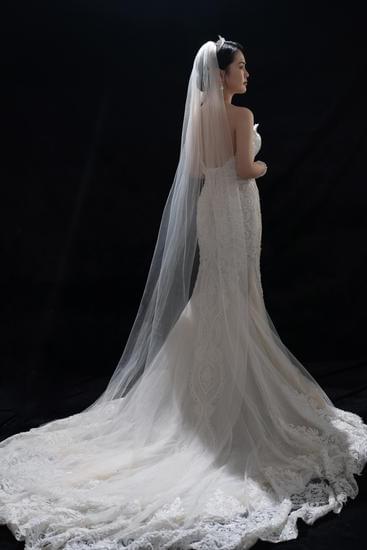Have you ever found yourself asking the question, “Do I want a wedding?” This seemingly simple inquiry can often lead to complex reflections on personal values, societal expectations, and the significance of marriage in one’s life. In this article, we will delve into the exploration of having a wedding, discussing its significance in modern society, and engaging in personal reflection on the desire for a wedding.
Weddings are deeply ingrained in our cultural and social fabric, symbolizing love, commitment, and the union of two individuals. The decision to have a wedding can evoke both excitement and stress as individuals navigate their own desires alongside societal pressures. By examining the idea of having a wedding through a personal lens, we can open up a dialogue about the multifaceted nature of this milestone event.
As we consider the prospects of celebrating love through weddings, it is essential to weigh the pros and cons that come with this significant life event. From highlighting the advantages of hosting a traditional wedding to addressing potential drawbacks and stress associated with planning such an event, there is much to ponder when contemplating whether or not a wedding is right for you.
Let’s embark on this introspective journey together to unravel these complexities and bring clarity to your thoughts on weddings.
The Pros and Cons of Having a Wedding
The decision to have a wedding is one that comes with its own set of pros and cons. On the one hand, weddings provide an opportunity to celebrate love and commitment in a grand and meaningful way. On the other hand, the process of planning and executing a wedding can be stressful and overwhelming. Below are the advantages and disadvantages of having a traditional wedding, as well as alternative options to consider.
Pros of having a wedding:
Cons of having a wedding:
Alternative options to consider:
1. Elopement or intimate ceremony: Opting for a smaller gathering or elopement allows for a more intimate and personal expression of love without the stress and financial burden of hosting a large event.
2. Civil ceremony: Choosing to have a civil ceremony at city hall or another non-traditional venue provides an alternative option for legalizing marriage without the extravagance of a traditional wedding.
3. Destination wedding: Consider having an intimate destination wedding to combine celebration with travel while avoiding some of the traditional pressures associated with local events.
Remember that ultimately, whether you choose to have a traditional wedding or explore alternative options is entirely up to you, your partner, and whatever makes you both happy. It’s important to weigh these pros and cons based on your personal values, priorities, and financial situation before making any decisions regarding your big day.
Wedding Traditions and Expectations
Cultural and Family Traditions
Weddings are often steeped in cultural and family traditions that have been passed down through generations. From specific rituals and ceremonies to traditional attire and customs, these elements can hold significant meaning for individuals considering marriage. It is important to reflect on the role of these traditions and how they align with personal values and beliefs.
Some may find comfort in upholding these practices, while others may feel a sense of obligation or even reluctance when it comes to adhering to certain customs. Considering the significance of these traditions can provide insight into whether a traditional wedding is truly desired, or if there is room for alternative forms of celebration.
Societal Expectations
The pressure to have a grand, extravagant wedding can be immense in modern society. Weddings are often portrayed as lavish events, complete with stunning venues, elaborate décor, and opulent celebrations. This portrayal can create an expectation that every couple should aspire to such a level of grandeur when tying the knot.
The influence of social media, celebrity weddings, and cultural norms can contribute to this pressure, leading individuals to question their own desires for a wedding. It is essential to examine whether the desire for a grand wedding stems from genuine personal preference or external expectations.
Upholding or Breaking Away From Tradition
The decision to adhere to traditional wedding norms or break away from them holds substantial importance when contemplating the idea of having a wedding. Cultural and societal expectations may clash with individual desires, creating a conflict that merits careful consideration.
Whether embracing tradition or forging a new path, each decision has its own set of implications and significance. Reflecting on one’s values and priorities can aid in determining whether tradition holds weight in the aspiration for a wedding or if alternative paths better align with personal beliefs and preferences.
As individuals navigate the complexities of cultural traditions and societal pressures surrounding weddings, understanding the impact of these factors on personal desires becomes vital in making an informed decision about whether they truly want a wedding.
Personal Values and Priorities
When considering whether or not to have a wedding, it’s essential to reflect on personal values and beliefs related to marriage and commitment. It’s important to ask oneself, “Do I want a wedding that aligns with my values and priorities?” This introspective exploration can provide valuable insight into the significance of a wedding in the context of individual beliefs.
To begin this reflection, individuals can create a list of their personal values and prioritize them in relation to the idea of a wedding. For example:
- Commitment: How important is the public declaration of love and commitment through a formal wedding ceremony?
- Intimacy: Does a large traditional wedding align with my desire for an intimate celebration with close friends and family?
- Financial Responsibility: How does the cost of a wedding align with my value of financial stability and prudence?
Furthermore, pondering the importance of a wedding in the context of personal priorities can shed light on whether or not the event holds significant meaning. Are there other life goals or aspirations that take precedence over hosting a traditional wedding? Exploring these questions can guide individuals in making an informed decision about whether or not they truly desire a wedding.
The Financial Aspect of Weddings
Weddings are often associated with a significant financial investment, and it’s essential to consider the financial aspect when pondering the question “Do I want a wedding?” The cost of planning and hosting a traditional wedding can be quite substantial, leading many individuals to evaluate whether the expenses align with their priorities and values.
Addressing Financial Implications
When considering whether to have a wedding, one must take into account the various expenses involved, including venue rental, catering, decorations, attire, photography, and entertainment. The average cost of a wedding in the United States is considerable, and for some individuals and couples, this expense may not be justifiable.
Additionally, there may be other financial priorities that take precedence over hosting a formal wedding event. It’s important to assess how investing in a wedding aligns with personal financial goals and long-term plans.
Pressure for Lavish Weddings
There is societal pressure to have a lavish and extravagant wedding celebration. This pressure can stem from cultural expectations, social media influences, or even well-meaning family members. However, succumbing to this pressure can place significant strain on personal finances and lead to unnecessary stress. It’s crucial for individuals to reflect on their own values and resist the temptation to overspend simply to meet unrealistic standards set by external influences.
Exploring Alternative Celebratory Options
For those who question whether they want a traditional wedding due to financial concerns, it’s important to explore alternative ways of celebrating love without breaking the bank. Intimate gatherings with close friends and family members or opting for an elopement or civil ceremony can be financially feasible alternatives. These options allow couples to focus on the essence of their union rather than getting caught up in the grandeur of a costly event.
As individuals navigate their desires for a wedding in light of financial considerations, it’s essential to make informed decisions that align with personal values and long-term financial well-being. By assessing the implications of hosting a traditional wedding and exploring alternative forms of celebrating love within budget constraints, individuals can make choices that resonate with their priorities and beliefs about marriage.
Alternative Forms of Celebrating Love
Weddings have been a long-standing tradition in many cultures, symbolizing the union of two individuals and their commitment to each other. However, as societal norms and personal preferences continue to evolve, many people are questioning whether a traditional wedding is the right choice for them. When considering the question “do I want a wedding?” it’s important to explore alternative forms of celebrating love that may better align with individual values and desires.
One alternative to a traditional wedding is opting for an intimate gathering with close family and friends. This allows for a more personal and meaningful experience, focusing on the love and connection between the couple and their loved ones without the pressures of a larger, more formal event. Additionally, elopements or civil ceremonies offer couples the opportunity to exchange vows in a private and intimate setting, free from the expectations and traditions of a traditional wedding.
As couples consider their options for celebrating their love, it’s essential to reflect on what truly matters to them. For some, prioritizing the marriage itself over the wedding event can lead to exploring non-traditional ways of expressing commitment. This may include planning activities or trips that hold personal significance rather than investing time and resources into a large wedding celebration.
Overall, there are numerous alternative forms of celebrating love that allow couples to tailor their commitment ceremony to align with their unique values and priorities. By considering these alternatives, individuals can make an informed decision about whether they truly want a traditional wedding or if there are other methods of celebrating their union that are better suited to their personal preferences.
| Alternative Forms | Description |
|---|---|
| Intimate Gatherings | A smaller, more personal event with close family and friends |
| Elopements/Civil Ceremonies | A private exchange of vows without the expectations of a traditional wedding |
| Alternative Celebrations | Non-traditional activities or trips that hold personal significance |
Communicating Preferences and Expectations
When it comes to the decision of whether or not to have a wedding, it is crucial to communicate one’s preferences and expectations openly and honestly with all relevant parties. The first step in this process is to have a conversation with one’s partner about their desires and thoughts on the matter.
This communication is essential in order to ensure that both individuals are on the same page and have a clear understanding of each other’s perspectives. It may also involve discussions with close family members who may have expectations or desires regarding the couple’s wedding plans.
Additionally, it is important for individuals to communicate their preferences and expectations regarding weddings with friends and other loved ones who may play a role in the planning or execution of the event. This can help prevent misunderstandings or conflicts down the line, as well as ensure that everyone involved feels heard and understood. Open and respectful communication can go a long way in preventing unnecessary stress or tension during what should be a joyous occasion.
In some cases, there may be differing views on what constitutes an ideal wedding among those involved in the decision-making process. In these instances, compromise may be necessary in order to find common ground that satisfies everyone’s desires to some extent. This could involve making concessions on certain aspects of the wedding while prioritizing others, or exploring alternative forms of celebration that incorporate elements important to all parties involved.
It is important for individuals to assert their desires and priorities when it comes to their own wedding, but it is equally important to approach these conversations with empathy and understanding for others’ perspectives. Ultimately, effective communication around wedding preferences and expectations can lead to a more harmonious planning process and a celebration that truly reflects the values and desires of those involved.
| Communication | Preferences |
|---|---|
| Openness | Honesty |
| Respectful | Understanding |
| Compromise | Harmony |
Conclusion
In conclusion, the decision to have a wedding is deeply personal and should be approached with careful consideration. This article has delved into the various factors that play a role in deciding whether or not to have a traditional wedding ceremony. From weighing the pros and cons to contemplating personal values and societal expectations, it is evident that the choice of whether or not to have a wedding is complex and multifaceted.
It’s important for individuals to reflect on their own desires for a wedding and consider alternative forms of celebrating love. While weddings carry cultural traditions and societal pressures, it’s ultimately up to each person to align their wedding preferences with their personal values and priorities. Whether opting for an intimate gathering, elopement, civil ceremony, or a traditional wedding event, the focus should be on the marriage itself rather than solely on the spectacle of the wedding.
As readers contemplate the topic at hand, they are encouraged to communicate openly with their partners and loved ones about their desires for a wedding. Compromises may need to be made when there are differing views on weddings, but this open dialogue can help ensure that all parties involved are aligned in their preferences. Ultimately, this article aims to provide guidance and encouragement for individuals as they explore various options and make informed decisions about their wedding preferences.
Do I want a wedding? The answer lies within each individual’s unique set of values, beliefs, and aspirations for their future union with their partner.
Frequently Asked Questions
How Do You Decide if You Should Have a Wedding?
Deciding to have a wedding ultimately comes down to personal preferences and values. Some people view it as an important tradition, while others may prioritize intimate gatherings or financial stability. Consider factors like your relationship, budget, and desired level of celebration.
How Do I Decide if I Want to Attend a Wedding?
When deciding whether to attend a wedding, consider your relationship with the couple, logistics, and any potential conflicts. If you’re close to the couple and able to attend, your presence can be meaningful. However, it’s okay to decline if you have valid reasons.
Is It Okay to Not Want to Have a Wedding?
It is perfectly okay not to want to have a wedding. Every individual and couple has their own reasons for choosing not to have a traditional wedding ceremony or celebration.
Whether it’s due to financial concerns, personal preferences, or simply not feeling compelled by the idea, it’s important to make the decision that feels right for you and your partner.

I have been involved in marriages for over 20 years helping couples and singles understand more about them.





